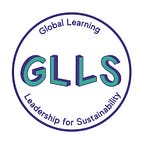Öykü’s Reflection on International Masters Summer School 2023 of the University of Bradford
The Circular Economy: Leading the way to fix a fragmented world
This program presented a wide range of information by explaining the circular economy theme from many different areas, as well as addressing the work of various countries and companies on this subject. It can be said that the three main subheadings of the program were the seminars where we had an idea about practices in different fields, the sustainable policies of countries with the narratives of representatives from countries such as Qatar and India, and the examples of nature-friendly practices at the corporate level with the records of regional CEOs of NGOs such as WWF.
As an example of the first subtitle, the talk that interested me the most was the talk on designing green cities. Seeing examples of vertical agriculture and green architecture in England made me realize how effective cities are designed, especially in protecting them from extreme heat. In addition, I had the chance to see more detailed applications of what I learned in the project we developed to make Zagreb a green city within the scope of UNIC in the past. In addition, I was very interested in the presentation by WWF representative Dr. Andreas Beckmann on the work done to reduce carbon emissions and protect natural life. In the presentation, the data that can reverse the loss of nature provided me with an idea about high-impact industries, which enabled me to see areas that I could focus on while working on sustainable economic models in the future. For me, one of the most productive seminars of the program was the seminar conducted by Andrew Gadd, where the circular economy was explained in detail. Explaining the basic principles of this model and how and why it can be applied at the corporate level today enabled me to learn very well the points that I knew before but did not fully understand. The part where he explained how he differed from the logic of recycling made me better understand that the circular economy is the economic model of tomorrow.
One point in the program that made me think and criticize was that developing or underdeveloped countries were at the center. In my opinion, the sustainability policies of these countries cause us to approach the issue from a narrower perspective because, on the other hand, we know that developed countries have a much greater influence in their hands. Nevertheless, hearing the approaches of the countries presented in the program on this issue was also effective in our understanding that sustainable practices have turned into one of today’s accepted issues. Countries around the world are trying to produce and adapt to nature-friendly approaches. I think this is a sign that this field will be on the agenda for all of us in the future.
Lastly, the fact that this program is an international experience excited me with the idea that we could learn from different cultures. Still, the lack of any activity to mingle the participants made it difficult for me to have this experience. People were more inclined to be with participants from their own countries, so we had a chance to just listen rather than discuss different ideas in interactive activities. This lack made itself felt less by the incoming speakers and our initiatives.
As a result, this program broadened my horizons on the circular economy and its uses and contributed to creating new lines in my future career plans. Based on what I learned from here, I found the motivation to increase my research on the circular economy and environmentally friendly business models.
